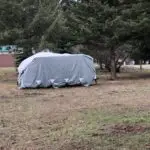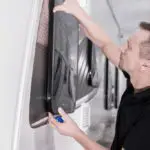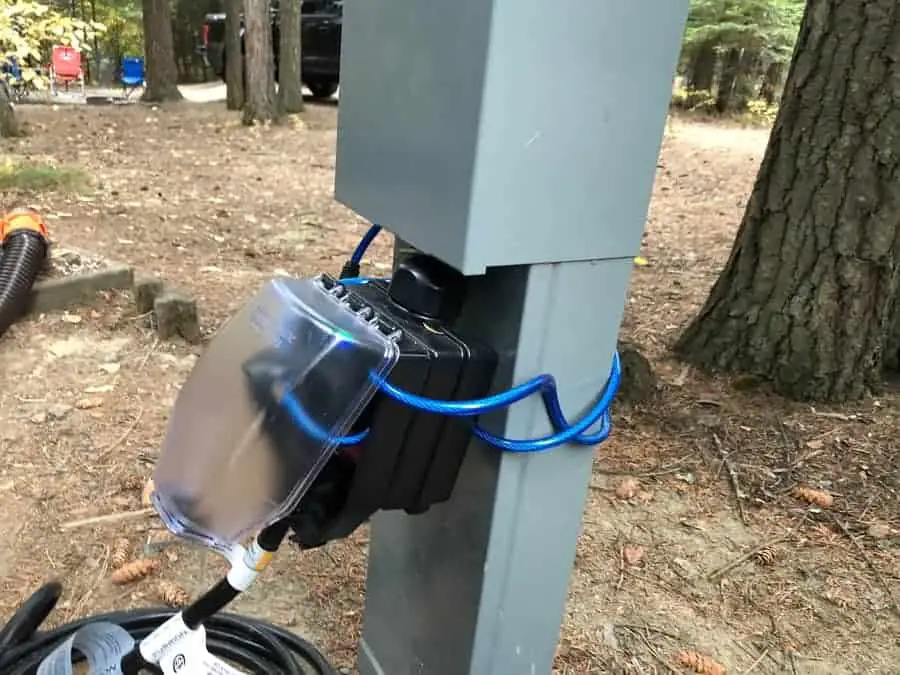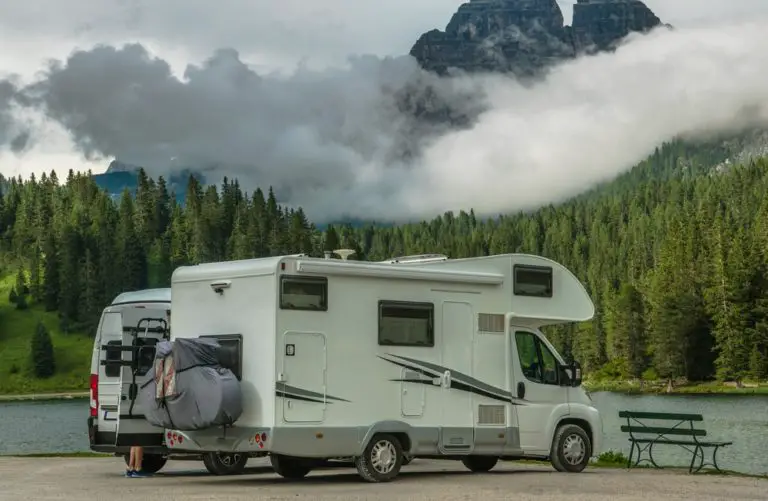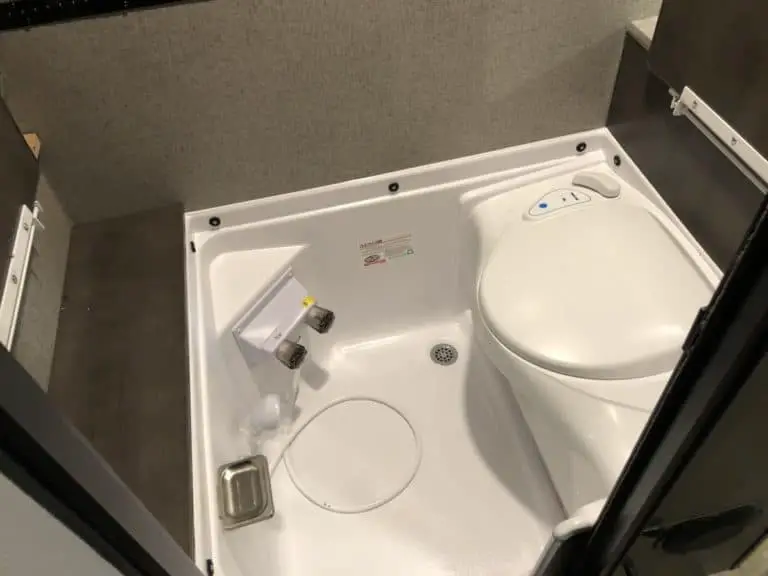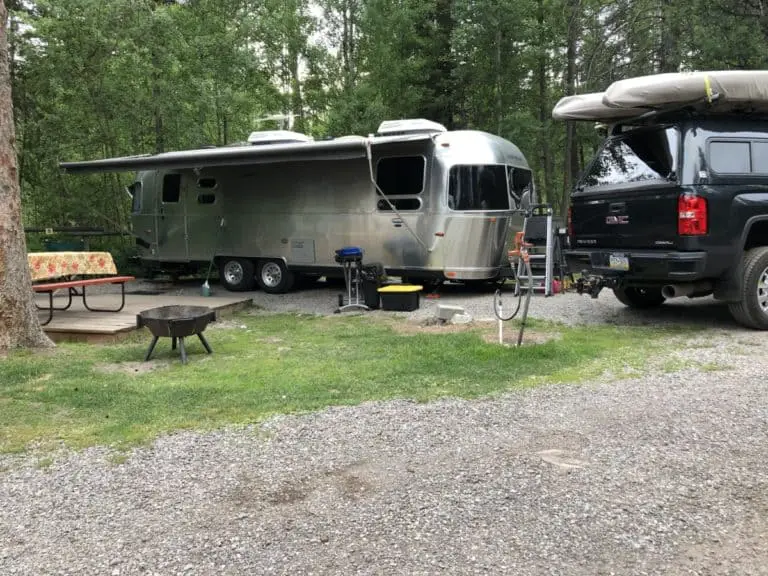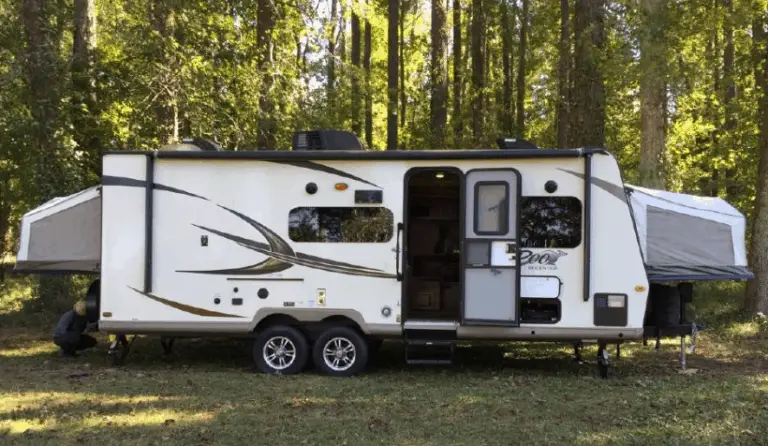Should you Cover your Travel Trailer in the Winter?
So you’ve made some incredible summer memories in your travel trailer, but you’re not sure how to keep it safely protected in the winter. This is a common dilemma among travel trailer owners. You may wonder if it is worth it to cover your travel trailer, or if you are wasting your money. If you’re not sure how to protect your travel trailer from the elements during the off-season, there are a few things you should consider before choosing your method. To put it simply, let’s ask the big question first:
Should you cover your travel trailer in the winter? The answer is yes. It is crucial to keep your trailer protected from harsh elements when it is not in use. However, it is important to know which type of cover to use to keep your trailer protected. Some covers can scratch your vehicle, or cause a moisture issue that could lead to further damage.
Let’s take a look at how a cover can protect your travel trailer, and what to watch out for in terms of potential damage.
What does a RV cover protect from?
The right cover can protect your travel trailer from a slew of natural forces. In the winter, precipitation, moisture, low temperatures, and other elements threaten to cause damage to your vehicle. Our favorite cover is breathable, fitted, and comes in a variety of sizes. By using the right cover for your travel trailer, you can protect it from damage caused by the following factors:
UV Rays
One element many travel trailer owners don’t consider is UV rays. Even in the winter, the sun emits UV rays that can potentially damage your vehicle. These rays can crack, fade, or peel the paint or decals on your vehicle. In certain conditions, they can also crack other elements and potentially cause roof damage. When choosing a cover, you should pick one that specifically blocks the UV rays of the sun.
Rain
An obvious factor to watch out for in the winter is precipitation. Rain adds moisture to the environment, which can become trapped inside your vehicle and cause damage. Moisture can warp the structures of your trailer and cause a spread of mildew and mold in the vehicle. A good cover will have tiny pores designed into the material. These holes are too small for outside moisture to enter through them, but they allow trapped moisture to evaporate out of the cover.
Snow
Another form of winter precipitation is snow. Just like rain, snow also adds moisture to the air that can become trapped inside your vehicle. Besides the moisture issues, snow poses the added threat of being heavy when it accumulates. A heavy layer of snow can damage the lightweight structures of your vehicle, and even dent in the roof if it is not removed.
A cover helps with both of these issues and makes snow removal an easier process. Using a shovel to scrape snow directly off the roof can cause scratches or dents. A cover adds a barrier between the vehicle and the elements, making them easier to remove, and using a plastic shovel will help prevent damage as well.
Ice
Another pesky form of moisture is ice. Ice is a threat to all vehicles for many reasons, and it may be one of the biggest threats to your travel trailer in the winter. Like snow, ice can cause damage due to its weight. If a layer of ice is covered by snow, the snow will insulate and melt the ice. The ice can then enter the small seams in your vehicle and cause internal damage. Covering the vehicle and regularly removing snow and ice will prevent damage associated with these elements.
Roof Damage
The roof of your travel trailer is arguably at the highest risk for damage during the winter months. An exposed roof left unprotected can easily become scratched, damaged, or dented. Especially if you have an air conditioner or other equipment fixed to the roof of your vehicle, it is important to protect this vulnerable area. Using a cover that protects from moisture and UV rays, and regularly removing ice and snow with a plastic shovel can help prevent damage to this area.
Irregular Interior Temperatures
Adding a cover to your travel trailer will help keep the temperature cool inside the vehicle. On sunny days, an unprotected travel trailer can reach extremely high temperatures due to the UV rays of the sun. If the temperature gets too hot, your vehicle could suffer seal damage. Adding a cover helps prevent damage to the seals of your vehicle due to high temperatures.
Damage to Graphics and Paint
The graphics and paint that embellish your travel trailer run a risk of becoming scratched or damaged during the winter months. Snow, rain, ice, UV rays, and wind can all potentially scratch, fade, or peel the paint and graphics of your vehicle. A cover can help avoid this and keep your vehicle looking good as new until the next adventure season.
Can a cover do damage to an RV?
Contrary to popular belief, certain types of covers can actually cause damage to your travel trailer. By placing a cover over your vehicle, you may believe you are only protecting it. However, it is important to choose your method carefully to avoid scratches. Here are a few things to look out for when deciding how to protect your travel trailer during the winter months.
Scratch due to Wind
Many covers have the potential to scratch your vehicle if it is in an environment with heavy wind. The movement caused by the wind can scratch the paint, windows, or other parts of your vehicle. To prevent this, buy a fitted cover for your trailer. If the cover is fitted, it is much less likely to cause damage to the vehicle. It will fit snugly over your trailer and keep it protected, even on a windy day. Also keep this cover tightly fastened to your vehicle. This will limit cover movement with the wind.
Moisture Damage
Moisture is a common form of winter damage with or without a cover. Some types of covers, such as tarps, can trap moisture. If this moisture sits beneath the tarp, it can damage the outside of your vehicle, and even enter the vehicle to cause damage internally. Purchasing a porous cover will help this moisture evaporate, so it does not harm the trailer.
Blue Tarps can Cause Damage
It is important to note that blue tarps found at hardware stores can cause damage to your travel trailer. Many people think they are protecting their vehicle by using a blue tarp to cover it. However, this type of tarp is known for the lasting damage it can cause.
Blue tarps can wear away the plastic siding around your trailer, damage paint and graphics, and harm other external elements of the vehicle. Since the blue tarp is not fitted and made from a harsher material, it can move on windy or stormy days which contributes to this damage. These tarps are also not breathable, and may not be UV ray resistant. This means they can restrict airflow, trap moisture, and allow UV rays to penetrate and damage the vehicle.
Conclusion
It is important to cover your travel trailer during the winter months. Learning the reasons you should cover your trailer will help you understand the importance of properly preparing the vehicle for the winter months. Choosing a good cover can make all the difference in how well your vehicle can endure the winter elements. Making the best choice for your vehicle will help you properly store it during the winter, and make a seamless transition to the summer adventure season!
Be the first to be notified about FREE tips, hints, coupon codes, and email-exclusive information. All for FREE!


